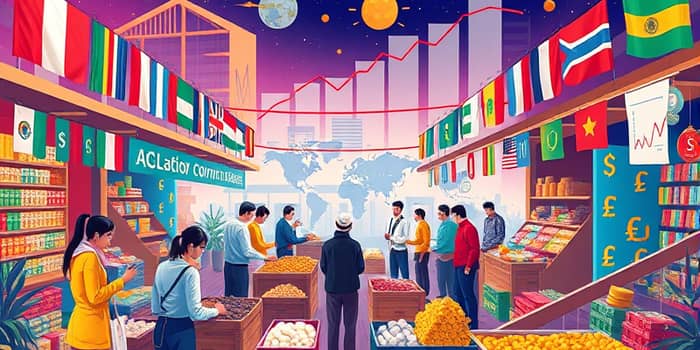Inflation is a crucial economic phenomenon that affects various aspects of the economy, particularly international trade. Understanding how inflation operates and its implications on trade relations is essential for businesses and policymakers alike.
As prices for goods and services fluctuate, they influence the purchasing power of currencies, which in turn affects trade balances and competitiveness on a global scale.
In this article, we will explore the multifaceted relationship between inflation and international trade, delving into the mechanisms at work and the responses required by relevant stakeholders.
The interaction between inflation and trade is dynamic and complex, involving various components such as exchange rates, competitiveness, and policy responses.
Inflation can lead to significant alterations in trade dynamics, impacting how countries conduct their international business and how they respond to economic pressures.
Understanding these relationships can provide insights into how inflation can be managed more effectively in relation to trade.
In subsequent sections, we will dissect different elements of this relationship, offering a comprehensive view on how inflation drives trade decisions and economic policies.
Understanding Inflation
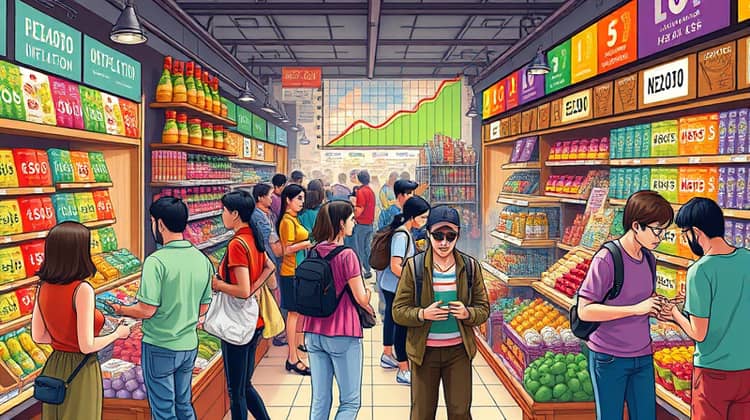
Inflation refers to the general increase in prices and the fall in the purchasing power of money. It can occur due to various factors, including demand-pull inflation, where demand outstrips supply, or cost-push inflation, where production costs rise.
Understanding these dynamics is essential because they significantly affect the economic landscape, including trade.
When inflation rises, consumers and businesses may find that their money buys fewer goods and services than before. This decrease in purchasing power can lead to changes in consumer behavior and spending patterns, prompting businesses to adjust their pricing and production strategies.
Consequently, inflation can alter the flow of goods across borders, influencing trade balances and leading to potential volatility in international relations.
Moreover, inflation can affect interest rates, employment levels, and overall economic growth. Central banks pay close attention to inflation trends and utilize monetary policy to maintain price stability, highlighting the interconnected nature of inflation with broader economic indicators.
Inflation and Trade: The Direct Connection
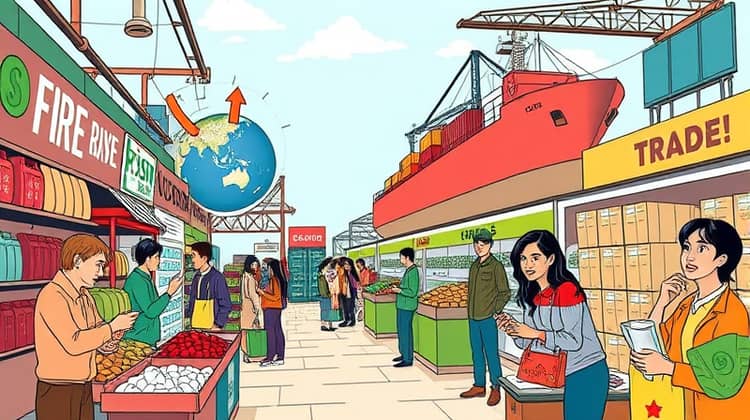
The relationship between inflation and trade is incredibly direct. As inflation rises, the cost of goods produced domestically typically increases, which can impact a country's competitive edge in international markets.
- Higher domestic prices can make exports less attractive to foreign buyers, shrinking demand.
- Many countries that experience inflation may see a decrease in their trade surplus or even a trade deficit.
- Inflation can lead to reduced consumer confidence, resulting in lowered demand for imports as consumers pull back on spending.
As a result, countries may find it increasingly challenging to maintain their export volumes, leading to shifts in trade patterns and potential retaliatory measures by trading partners.
Exchange Rates and Inflation
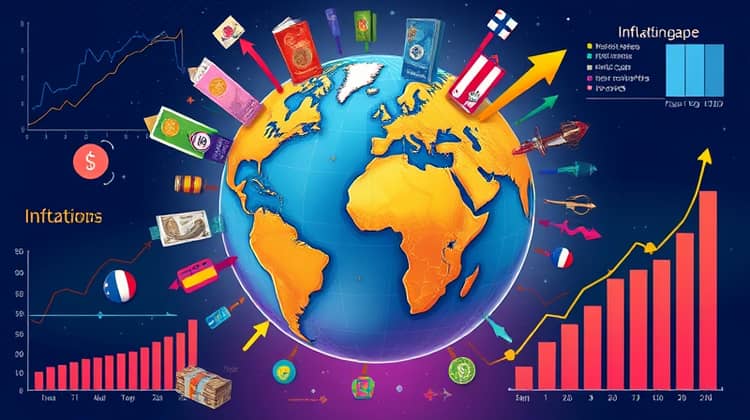
Inflation is intricately linked to exchange rates; as inflation rises in one country, its currency typically depreciates in relation to its trading partners.
- A depreciating currency can make exports cheaper and imports more expensive, encouraging a shift in trade dynamics.
- However, a weak currency can also raise the cost of imported goods, further aggravating inflationary pressures within the domestic economy.
Inflation’s Impact on Competitiveness

Competitiveness on the international stage is significantly influenced by inflation.
- Countries with lower inflation rates tend to enjoy a competitive advantage, as their goods remain relatively cheaper and more appealing to foreign markets.
- Conversely, high inflation can erode the cost advantage, making it harder for domestic producers to compete against foreign imports.
Policy Responses and Trade Relations
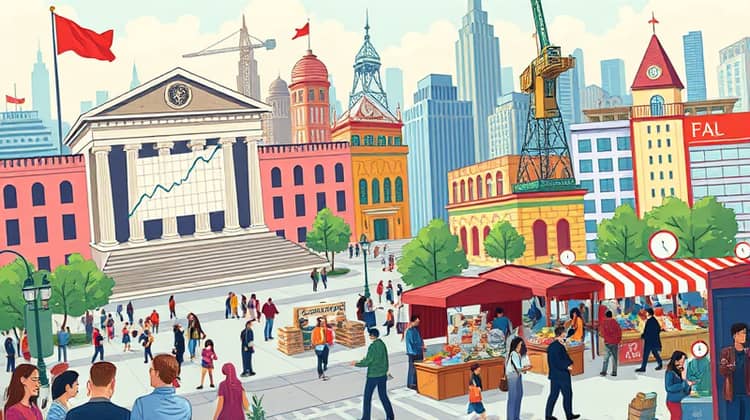
Governments and central banks respond to inflationary pressures through a variety of policy measures.
- Monetary policy adjustments, such as interest rate changes, aim to control inflation and stabilize the economy.
- Trade policies may also be revised to protect domestic industries from the adverse effects of inflation, such as imposing tariffs or trade restrictions to curb imports.
The Role of Central Banks
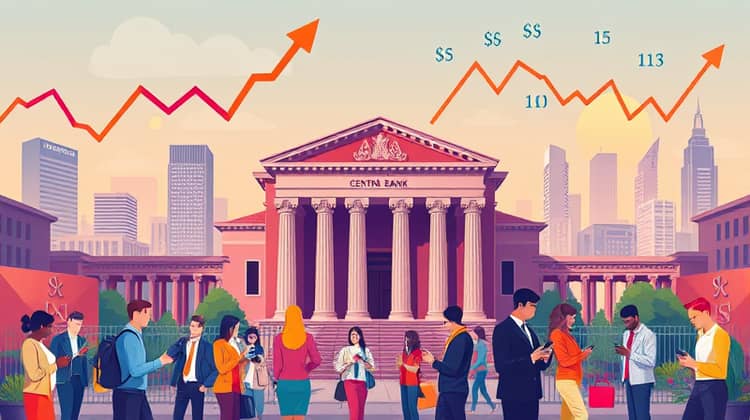
Central banks play a pivotal role in managing inflation through monetary policy. They influence inflation by adjusting interest rates to guide economic growth and control price levels.
When inflation rises, central banks may increase interest rates to cool off the economy and bring inflation under control. This increase can lead to higher borrowing costs, thereby affecting investments and consumer spending.
A delicate balance must be maintained, as overly aggressive measures can lead to economic contraction, further complicating trade relations and market stability.
Inflationary Pressures and Supply Chains
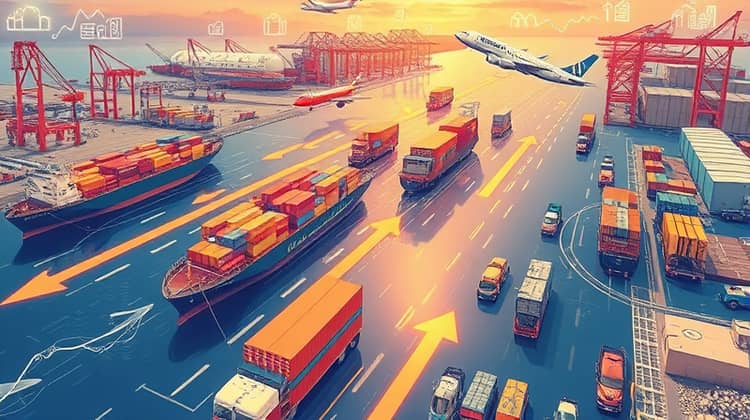
Inflation can create pressures within supply chains, disrupting the flow of goods and services across borders.
- Rising costs can lead to delays in production and increase transportation expenses, further complicating logistics.
- Supply chain disruptions can contribute to inflation, creating a vicious cycle that impacts multiple markets globally.
Conclusion
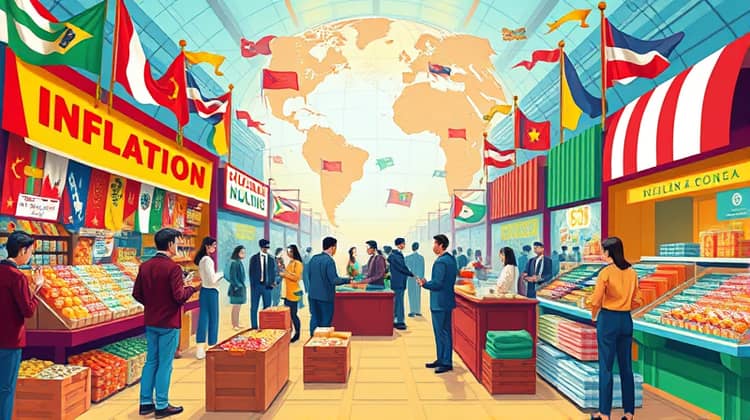
Understanding the connection between inflation and international trade is essential for stakeholders navigating an increasingly complex global economy.
As inflation affects consumer behavior, trade balances, and exchange rates, the ramifications extend far beyond mere price levels.
Policymakers must remain vigilant and responsive to inflationary trends, ensuring that trade relations are maintained and that competitiveness is preserved.
The interplay between these economic factors will shape the landscape of international trade in the years to come.
In conclusion, addressing inflation effectively requires comprehensive strategies that consider its multifaceted effects on trade dynamics.
Businesses and governments alike must work collaboratively to navigate the challenges posed by inflation, ensuring a stable and competitive environment for international trade.

